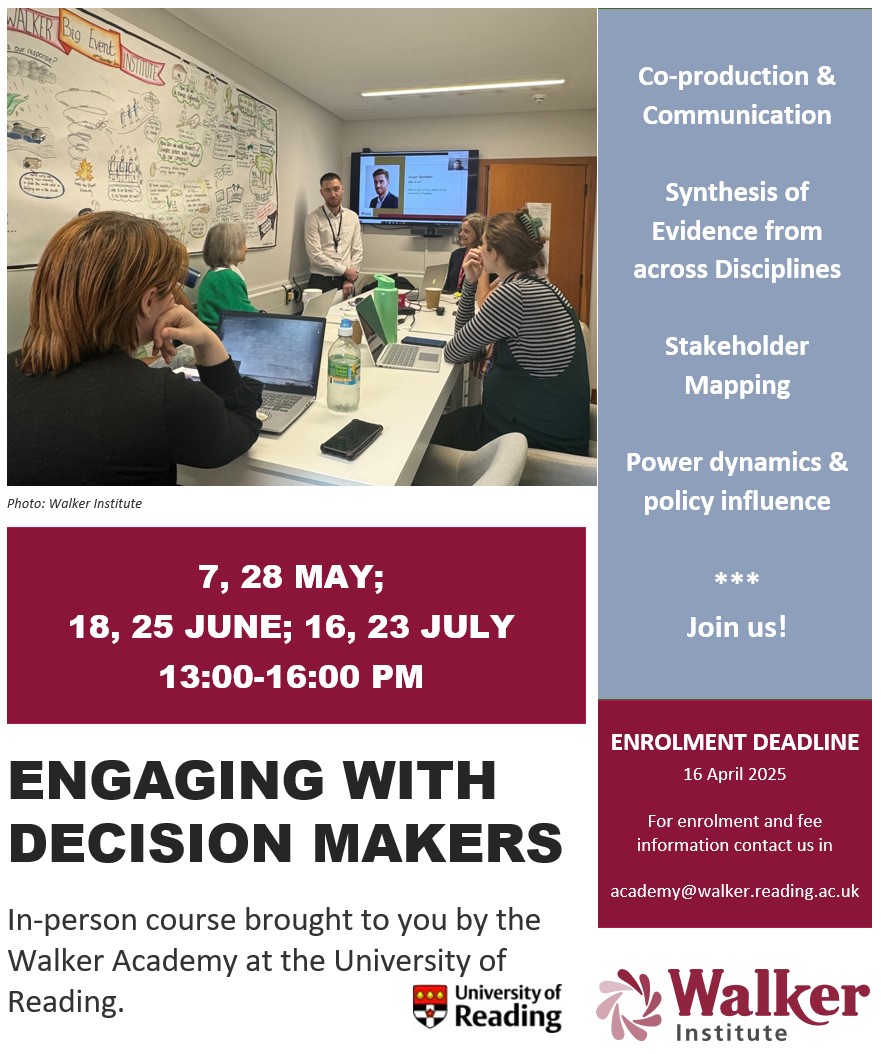ENGAGING WITH DECISION MAKERS
A course from the Walker Academy
We all need decision makers including politicians, practitioners and others with influence, to make evidence-based choices in the policies that affect our lives. Scientists and researchers throughout their careers are in a position to engage with this process by actively sharing the vital knowledge and information they generate.
The Walker Academy is running its ’Engaging with Decision Makers’ (EwDM) course in 2025 drawing on the Walker Institute’s work in the UK and international policy arena.
EwDM is a structured programme of facilitated in-person training taking place over six 3-hour sessions. At the end of the programme participants are equipped with practical tools to support their engagement with the policy process, covering: research design; maximising policy impact; targeted communication across stakeholder groups and other academic disciplines; and media work.
The theme running through the course is : ‘Achieving Policy Impact through your Research’ and involves work on the following topics:
- Co-production and communication
- Synthesising evidence for policy impact from across disciplines
- Stakeholder mapping
- Power dynamics and policy influence
For each of these headline topics, participants will take away one practical tool and one mini guide, so they complete the course with enhanced understanding of policy processes and relevant entry points.
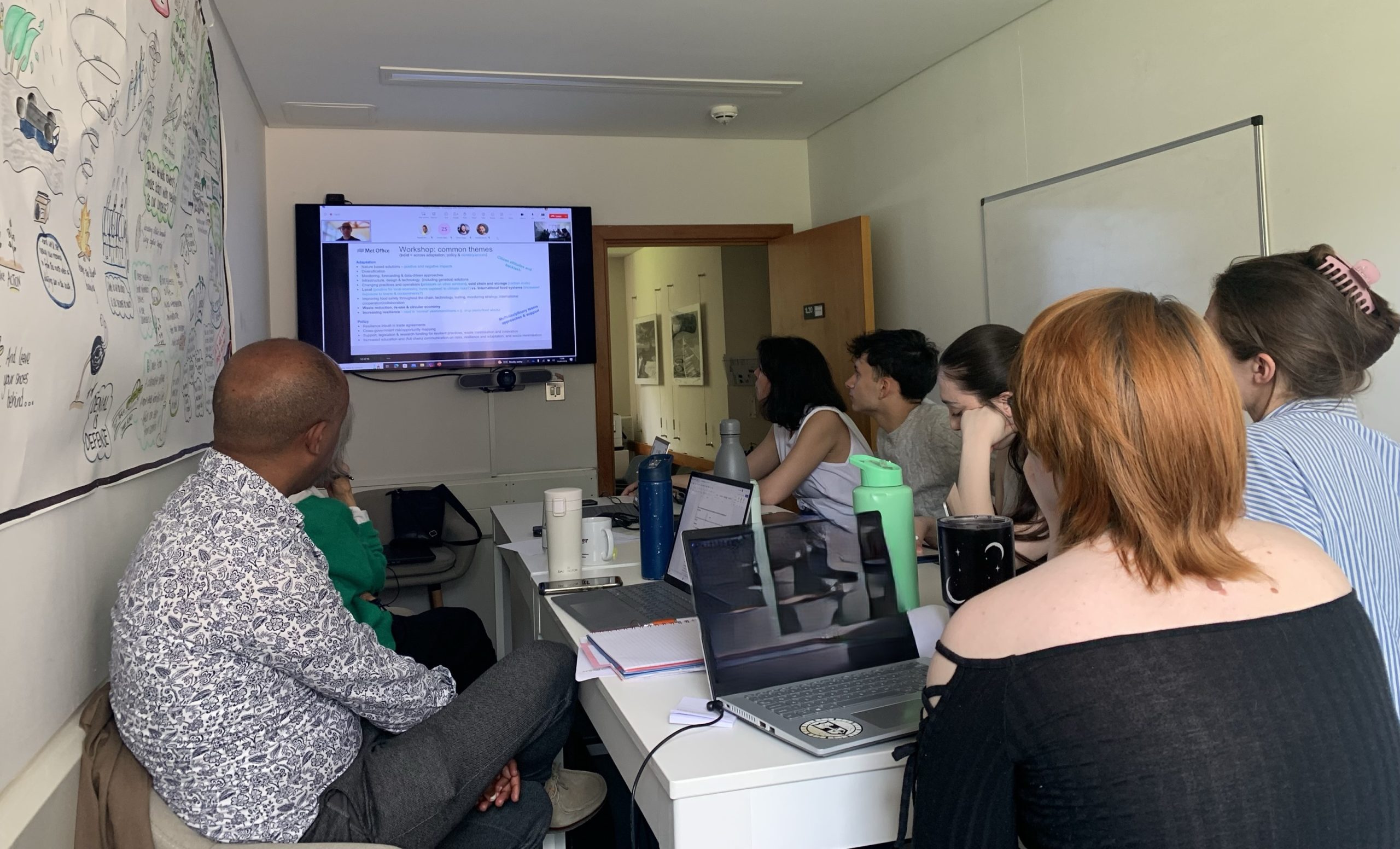
When?
2025 Dates:
- Session 1: Wed 7 May
- Locating your research in the decision landscape-principles of engagement
- Session 2: Wed 28 May
- Power dynamics and the enabling environment
- Session 3: Wed 18 June
- Pathways to impact in practice
- Session 4: Wed 25 June
- Your Pathway to Impact
- Session 5: Wed 16 July
- Communicating as part of your pathway to Impact
- Session 6: Wed 23 July
- Recap on tools and techniques for Engaging with Decision Makers
All sessions are running from 13:00-16:00 pm
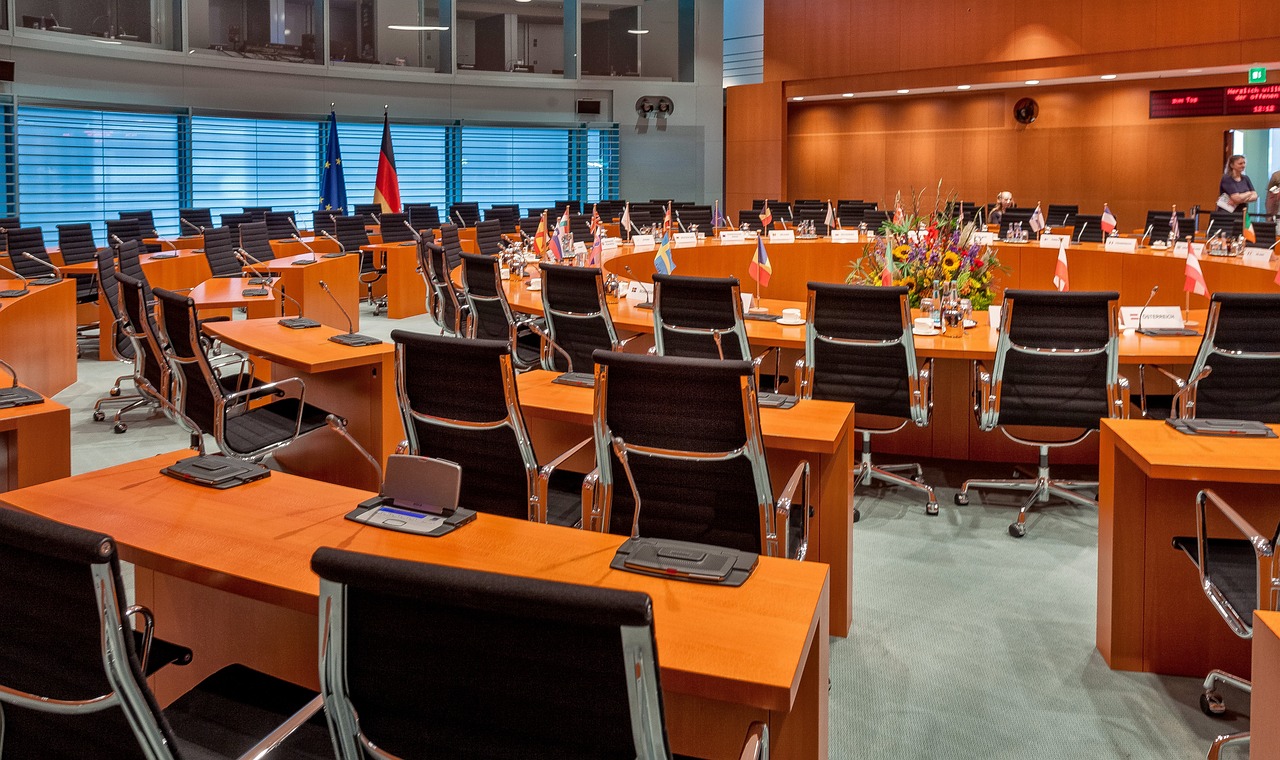
How to enrol?
For more information on enrolment and fees send us an email in academy@walker.reading.ac.uk .

Guest speaker for May 2025
We are delighted to welcome a guest speaker, Dr Pete Falloon, who will provide direct, real-world insight into this topic, through the lens of climate science in the UK government policy process. Dr Pete Falloon leads the Met Office Hadley Centre ‘Climate Service for Defra on Food, Farming and Natural Environment’.
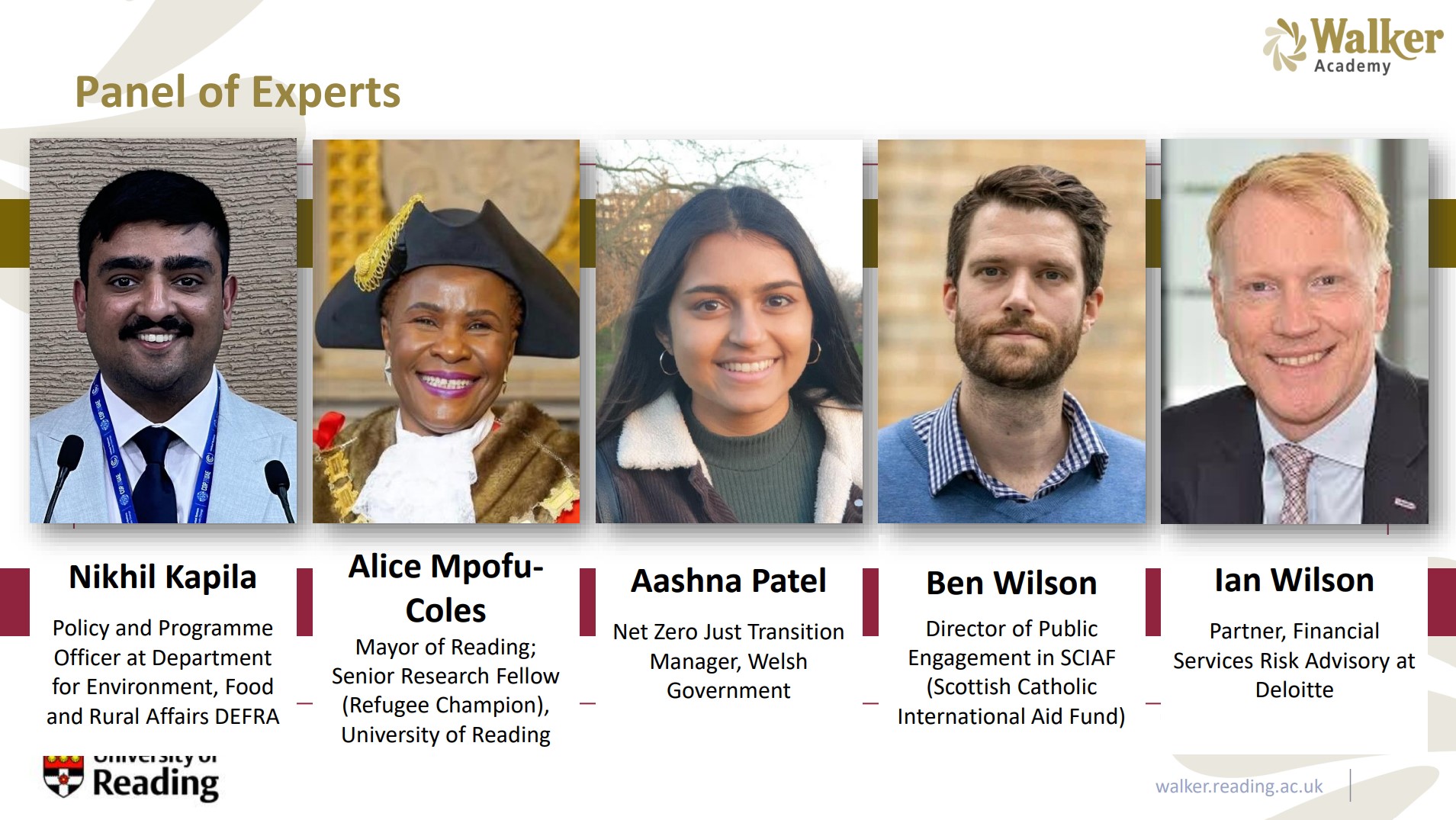
Decision Makers Expert Panel
For our last session we invited an expert panel discussion featuring voices from government, academia, and civil society. Nikhil Kapila (DEFRA), Alice Mpofu-Coles (Mayor of Reading and University of Reading Researcher), Aashna Patel (Welsh Government), Ben Wilson (SCIAF), and Ian Wilson (Deloitte) shared candid insights into how researchers can better connect with policy makers. From simplifying complex science to understanding institutional constraints, the panel offered practical advice and answered questions in a lively Q&A session.
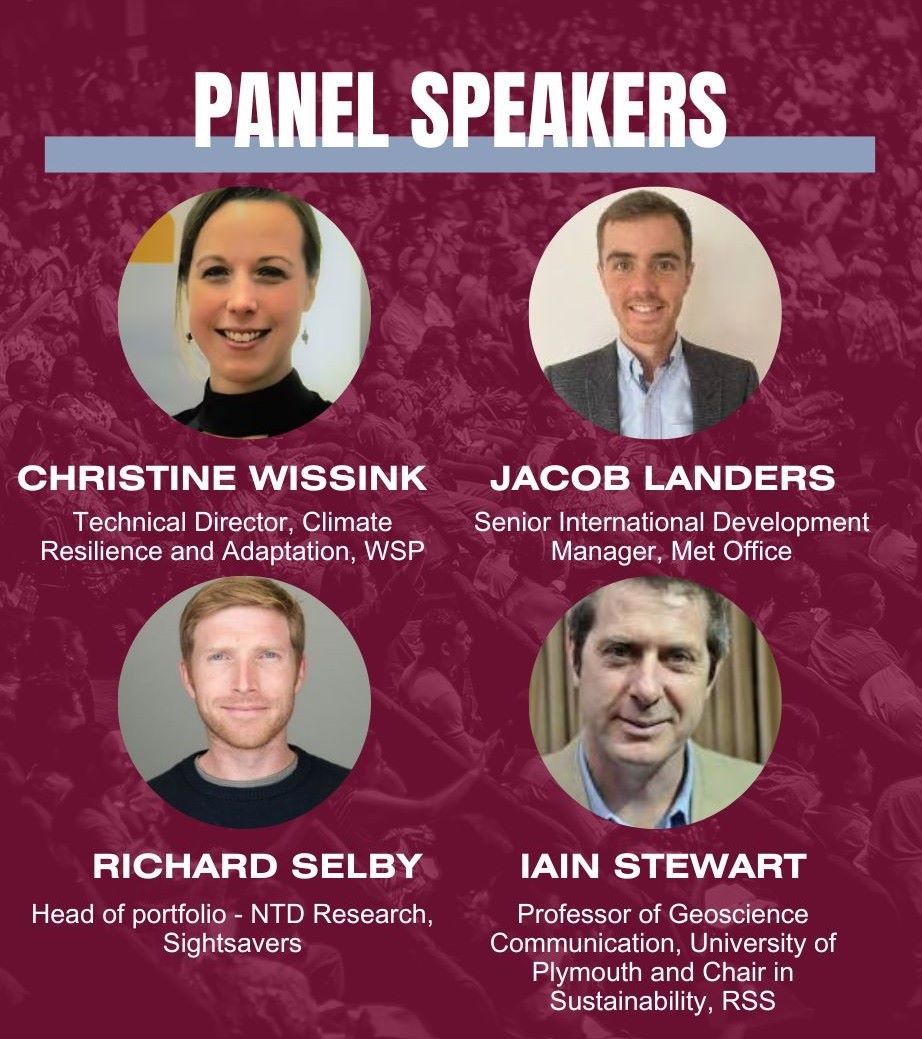
Panel Discussion
We will also convene an impressive panel of external speakers who will provide their insights and experience relating to the policy making process. Panel members represented the UK climate-policy advocacy sector, Climate action in the UN through the UNHCR, climate adaptation work in the consultancy sector and international humanitarian work.

